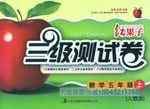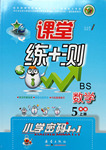题目内容
In America, on school and work days, breakfast in most homes is often a hurried meal. Some people even don’t have it in order to1work or school on time. Others just stop at coffee shops for coffee. But on weekends, 2are quite different. People usually get up late, so they have enough time to have a large breakfast.
Lunch is just a3break from the day’s work rather than a large, long meal. It usually lasts4half an hour or an hour, so family members do not have time to5home. Most people have a sandwich or a hamburger, and fruit or ice-cream for lunch.6people either take their lunches to work in the brown paper “lunch bag”,7eat a sandwich at a fast food restaurant. Children8to bring the “lunch box”.
Dinner is the most9meal of the day in the USA. At this meal, most American families can sit down together. It is usually a hot, large meal and it is quite different from lunch.10usually cooked dinner for their families in the past. Nowadays, however, with more women working and as a result, men are doing more in the kitchen.
- 1.
- A.reach to
- B.get to
- C.goes to
- D.reaches to
- A.
- 2.
- A.things
- B.prices
- C.reports
- D.life
- A.
- 3.
- A.long
- B.boring
- C.short
- D.happy
- A.
- 4.
- A.almost
- B.nearly
- C.only
- D.less than
- A.
- 5.
- A.drive
- B.leave
- C.return
- D.walk
- A.
- 6.
- A.Famous
- B.Clever
- C.Working
- D.Poor
- A.
- 7.
- A.or
- B.but
- C.and
- D.nor
- A.
- 8.
- A.forget
- B.decide
- C.prefer
- D.have
- A.
- 9.
- A.important
- B.common
- C.serious
- D.hurried
- A.
- 10.
- A.Men
- B.Women
- C.Children
- D.Cooks
- A.
1.考查动词短语,in order to为了后跟动词原形,表示到达,reach是及物动词不跟介词to;故选B
2.根据语境可知,在周末事情和平常就不一样了,故选A
3.考查形容词,a short break简短的休息
4.考查副词,根据题意可知午饭仅有半小时到一小时
5.由于时间短,没有时间回家,return home
6.上班的人往往带食物到工作场所吃,故选C
7.考查连词,根据语境可知或者是到快餐店吃汉堡,故用or表选择
8.考查动词prefer的用法,prefer to="like" better更喜欢,故选C
9.考查形容词,在美国晚餐是一天中最重要的,故选A
10.考查名词,以前妇女做饭,如今男士也经常做饭了故选B

 红果子三级测试卷系列答案
红果子三级测试卷系列答案 课堂练加测系列答案
课堂练加测系列答案One day, I happened to meet an Englishman in the street and soon we began to talk. As I was talking about how I was studying English, the foreigner seemed to be very surprised, gently shaking his head and saying “You don’t say!”
I was confused, and I thought, “Perhaps this is not a right thing to talk about.” Then I said to him, “Well, shall we talk about the Great Wall? Have you ever visited it?”
“Certainly! Everyone back home will laugh at me if I leave here without seeing it. The Great Wall is wonderful! ” “Yes, it is one of the wonders in the world. And people of many countries have come to visit it.” As I went on telling him more about it, he stopped me again, “You don’t say!”
I couldn’t help asking, “Why couldn’t I talk about it?”
“Well, I didn’t stop you talking about it,” he answered, greatly surprised.
“Didn’t you say ‘You don’t say!’?” I asked again.
Hearing this, the foreigner laughed loudly. He began to explain, “’You don’t say!’ means ‘Really’. Perhaps you know little about English idioms(习惯用语).”
Wow! How foolish I was! Since then I have been careful with English idioms.
【小题1】What made the foreigner laugh loudly?
| A.English idioms. |
| B.The writer’s question. |
| C.Their talking about the Great Wall |
| D.The writer’s way of learning English |
| A.In China. | B.In America. |
| C.In England. | D.In Japan. |
| A.Thank you | B.Excuse me | C.OK | D.Really |
| A.improve his spoken English |
| B.speak with foreigners in a polite way |
| C.pay attention to English idioms |
| D.be brave enough talking with foreigners |
| A.the difference | B.the popularity |
| C.the grammar rule | D.the change |
Several years ago, a television reporter was talking to three of the most important people in America. One was a very rich banker, another owned one of the largest companies in the world, and the third owned many buildings in the center of New York.
The reporter was talking to them about being important.
“How do we know if someone is really important?” the reporter asked the banker.
The banker thought for a few moments and then said, “I think anybody who is invited to the Whiter House to meet the President of the United States is really important.”
The reporter then turned to the owner of the very large company. “Do you agree with that?” she asked.
The man shook his head, “No. I think the President invites a lot of people to the White House. You’d only be important if while you were visiting the President, there was a telephone call from the president of another country, and the President of the US said he was too busy to answer it.”
The reporter turned to the third man. “Do you think so?”
“No, I don’t.” he said. “I don’t think that makes the visitor important. That makes the President important.”
“Then what would make the visitor important?” the reporter and the other two men asked.
“Oh, I think if the visitor to the White House was talking to the President and the phone rang, and the President picked up the receiver, listened and then said, ‘it’s for you.’”
【小题1】This story happened in _______.
| A.England | B.America | C.Japan | D.Australia |
| A.He was really important because he was a rich banker |
| B.The visitor to the White House was really important |
| C.The visitor who met the President of the United States was really important |
| D.the reporter was really important |
| A.He was really important because he owned many buildings in the center of New York |
| B.The owner of the very large company was really important |
| C.The visitor was really important if he talking to the President and the President received a telephone call for the visitor |
| D.The person who worked in the White House was really important |